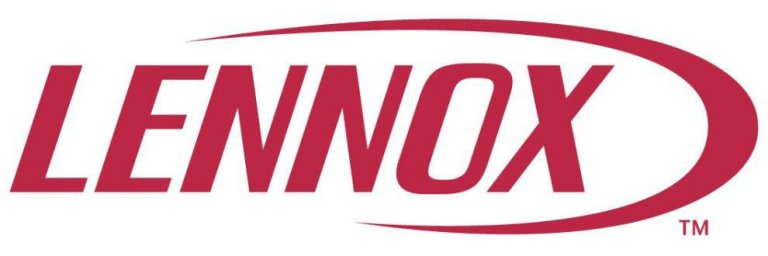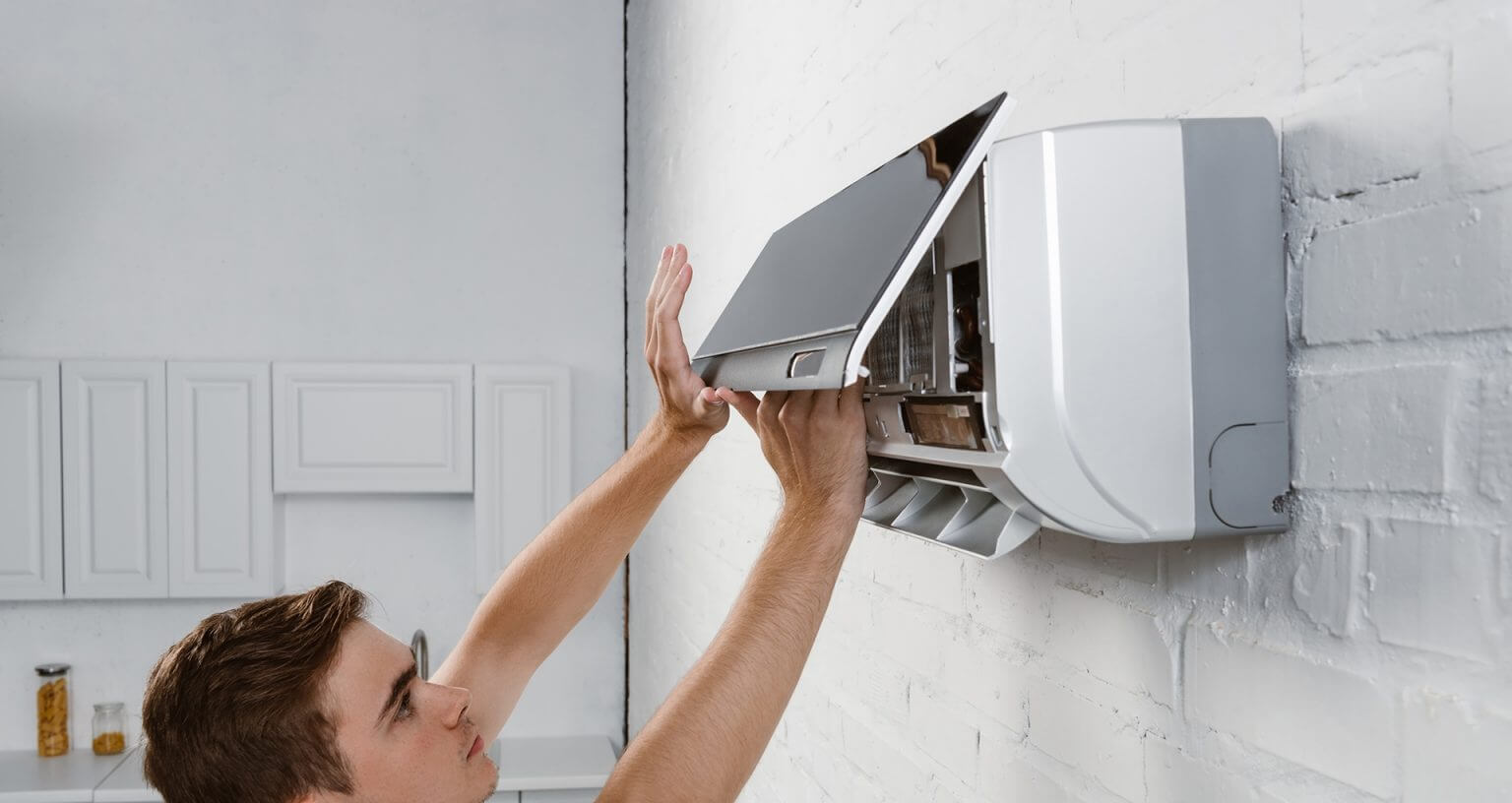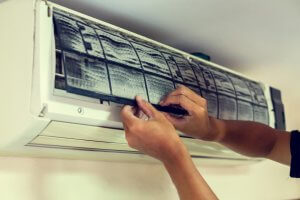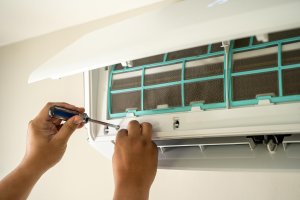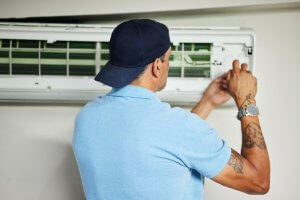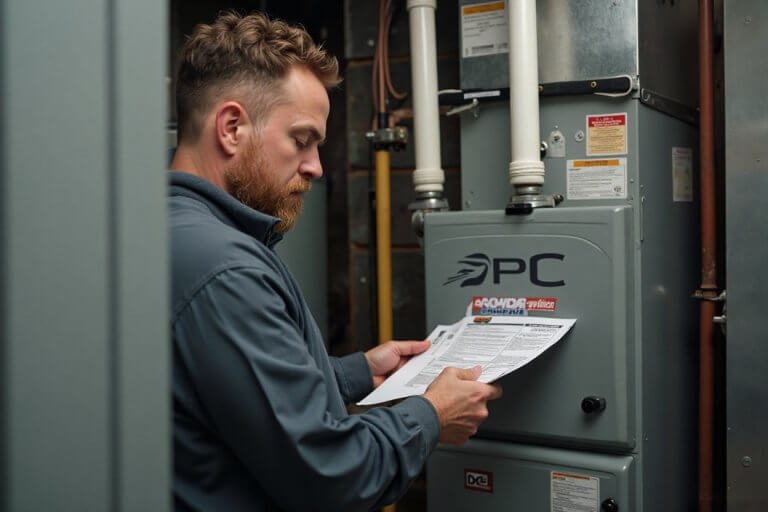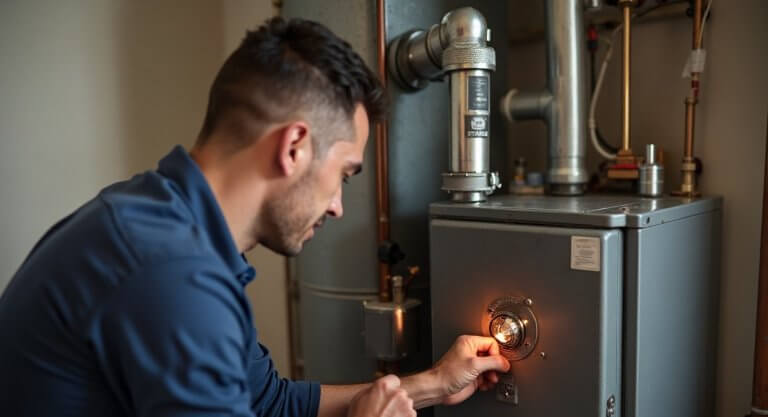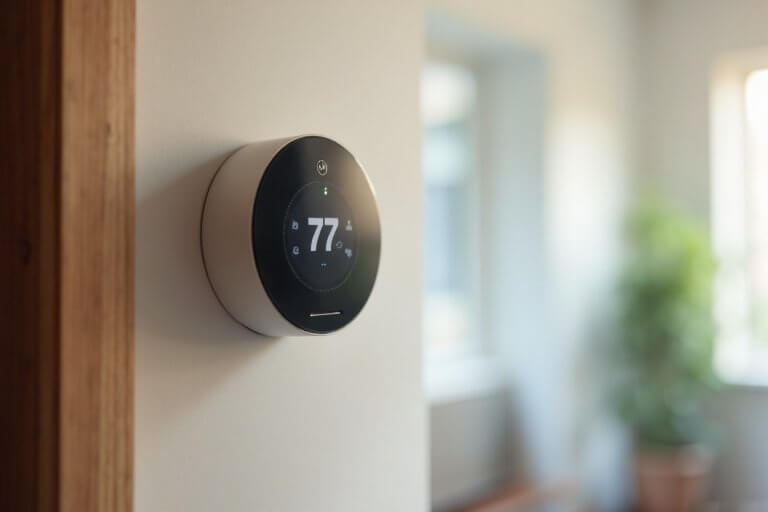How Often Should You Replace HVAC Air Filters?
Most HVAC air filters should be replaced every 30–90 days, depending on the type of filter, your home’s environment, and how often your system runs. Homes with pets, allergies, or high levels of dust or pollen may need more frequent replacements to maintain airflow and efficiency.
This guide answers a common homeowner question: how often should HVAC filter be replaced? You’ll learn the recommended replacement schedule based on system type and home conditions, the benefits of regular HVAC air filter replacement, how to tell when it’s time to swap it out, and what happens if you don’t.
Need help changing your filter or scheduling a service visit? Contact Season Control Heating & Air Conditioning at (818) 275-8487. We proudly serve Los Angeles and the surrounding communities with trusted HVAC services.
How Often Do You Need to Change HVAC Filters?
A standard 1-inch fiberglass filter typically lasts 30 days, while higher-efficiency pleated filters can last up to 90 days. However, these timelines can depend on system usage and household conditions.
You should replace your filter more often if you:
- Run your HVAC system year-round (common in Los Angeles homes)
- Have pets that shed dander and fur
- Live in a dusty or high-pollen area
- Have construction nearby
- Have a large family or high foot traffic
- Smoke indoors
- Have household members with asthma or allergies
Remember, the more contaminants your filter traps, the faster it clogs. This makes regular replacement crucial for maintaining your system’s efficiency.
When Should I Adjust My HVAC Filter Replacement Frequency?
While 30–90 days is a good general rule, the ideal replacement period varies depending on pets, people, location, and usage habits.
At Season Control Heating & Air Conditioning, we suggest adjusting the filter replacement schedule if you have:
Pets in the Home
Recommended replacement frequency: Every 30–60 days
Pets shed dander and fur that quickly clog filters. This restricts airflow and spreads allergens throughout the house.
Allergies or Asthma
Recommended replacement frequency: Every 30–45 days
Fresh filters reduce dust, pollen, and other airborne triggers that aggravate allergy or asthma symptoms.
Living Alone or Low-Traffic Homes
Recommended replacement frequency: Every 60–90 days
Air filters collect less debris with fewer occupants and less system use.
Dusty or High-Pollen Areas
Recommended replacement frequency: Every 30–45 days
Outdoor dust and pollen increase the load on your filter, especially during seasonal changes.
Nearby Construction
Recommended replacement frequency: Every 30 days
Dust and debris from nearby buildings or renovation projects quickly accumulate in filters.
Smoking Indoors
Recommended replacement frequency: Every 30–45 days
Cigarette smoke particles and odors get trapped in filters, reducing air quality more quickly.
Benefits of Replacing HVAC Air Filters
Replacing your HVAC air filter on schedule keeps your system efficient, protects indoor air quality, and helps you avoid unnecessary repair costs.
Here are the main benefits:
- Improved Energy Efficiency: Clean filters allow air to move freely, so your system doesn’t have to work harder than necessary.
- Lower Utility Bills: With less strain on the system, energy use drops, and monthly bills stay manageable.
- Better Indoor Air Quality: Fresh filters capture dust, pollen, dander, and other particles that circulate through your home.
- Extended System Lifespan: Reduced wear and tear helps protect expensive components like the blower motor and coils.
- Fewer Repairs: A clogged filter can lead to overheating, frozen coils, and other issues. Replacing filters lowers the chance of costly breakdowns.
- Consistent Comfort: Proper airflow keeps temperatures steady and reduces hot and cold spots around the house.
How to Know When It’s Time for HVAC Air Filter Replacement?
Replace your HVAC air filter when it looks dirty, airflow weakens, or your system struggles to keep up with demand.
Look out for these indicators:
- Filter looks gray, dusty, or clogged
- Weak or reduced airflow from vents
- More dust settling on furniture and surfaces
- Allergy or asthma symptoms getting worse indoors
- HVAC system running longer than normal to cool or heat
- Light doesn’t pass through the filter when held up
If you notice any of these signs, it is not recommended to wait for the 30–90 day mark and replace the filter right away to keep your indoor air clean.
What Happens if I Don’t Change My HVAC Filter Regularly?
If you don’t replace your HVAC filter on time, your system will work harder, energy bills will rise, and indoor air quality will suffer. Over time, ignoring filter changes can even damage key components of your system.
This is what happens if you don’t change your air filter in your house:
- Higher Energy Bills: A clogged filter blocks airflow, forcing your system to use more energy to heat or cool your home.
- Poor Indoor Air Quality: Dust, pollen, pet dander, and smoke particles circulate through your house instead of being trapped.
- Uneven Temperatures: Restricted airflow creates hot and cold spots in different rooms.
- System Strain: Overworked blowers and coils can overheat, freeze, or fail prematurely.
- More Frequent Repairs: Dirty filters are one of the leading causes of unnecessary HVAC service calls.
Shorter System Lifespan: Long-term neglect puts added stress on motors, fans, and other expensive components.
Can I Replace the Air Filter Myself Or Should I Call a Professional HVAC Maintenance Company?
Most homeowners can replace their HVAC air filter themselves, but give professionals a call if your filter is located in a hard-to-reach spot, you’re unsure of the correct size, or your system uses a specialty filter.
While DIY filter replacement is a practical choice, a professional can make sure it’s installed properly. A technician can also perform a full system check during the visit, which goes beyond filter maintenance alone.
If you are also not sure how often do you need to change HVAC filters, a local HVAC company can recommend the right replacement schedule based on your system, home environment, and usage habits.
Schedule Your HVAC Air Filter Replacement in Los Angeles
Scheduling HVAC air filter replacement keeps your system efficient, your indoor air cleaner, and your home more comfortable year-round.
Whether you handle filter changes yourself or work with a professional, staying on schedule prevents breakdowns and avoids unnecessary energy costs.
At Season Control, we offer filter replacement along with full HVAC maintenance, giving Los Angeles homeowners complete care for their heating and cooling systems.
Call (818) 275-8487 to book your service.
FAQs
How often should you change your air filter?
Most air filters should be changed every 30–90 days, depending on usage, filter type, and indoor conditions. Checking monthly is the best way to avoid clogging.
How often to change air conditioner filter?
During peak cooling season, plan to change your air conditioner filter every 30–60 days. Heavy use in summer makes filters clog faster.
How often should you replace furnace filter?
Furnace filters should be replaced every 60–90 days, but homes with pets or allergy concerns may need replacements closer to every 30 days.
How often to change air filter with pets?
If you have one pet, change the filter every 60 days. For multiple pets or heavy shedders, check the filter monthly and replace it every 30–45 days.
How often should you replace HVAC filters in a vacation rental?
HVAC filters typically last longer in vacation rentals because the system isn’t used every day. Still, filters should be checked at least once a month and replaced every 60–90 days, or sooner if guests bring pets or the property is in a dusty area.
